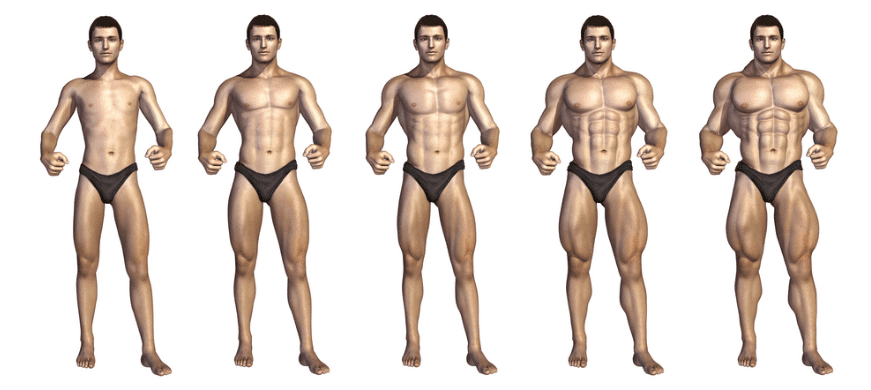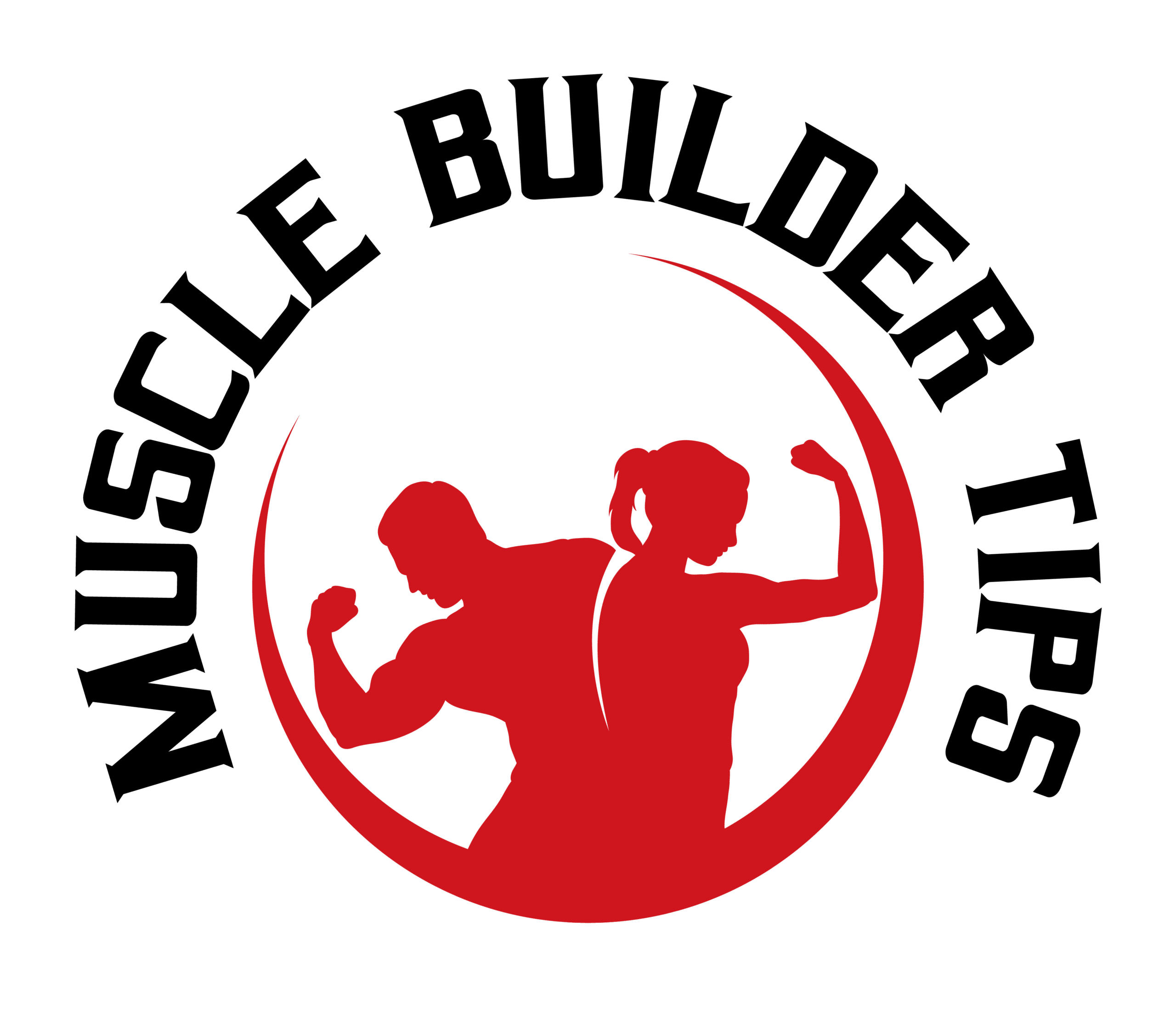
Hey there! Have you ever wondered how long it takes to build muscle? It’s a question that often comes up when you start hitting the gym or embarking on a new fitness journey. Well, let me tell you, building muscle is not a quick process, but it’s definitely worth the time and effort!
Building muscle involves a combination of factors such as your workout routine, nutrition, genetics, and even your age. There is no one-size-fits-all answer to how long it takes to build muscle because it varies from person to person. Some people may see noticeable changes within a few weeks, while for others, it may take a few months or even years to achieve the desired results.
In our article, “How Long Does It Take To Build Muscle,” we dive deeper into the different variables that can affect muscle growth and provide you with tips and strategies to speed up the process. So, if you’re curious to learn more about this fascinating topic, keep on reading!
How Long Does It Take To Build Muscle
Building muscle is a goal that many people strive for. Whether you are a beginner or an advanced trainee, the process of developing strong and defined muscles requires time, effort, and dedication. However, the question remains: how long does it take to build muscle? In this article, we will explore the factors that influence muscle building, the timeline for beginners, plateaus in the muscle building journey, and the experiences of advanced trainees.

This image is property of 1upnutrition.com.
Factors Affecting Muscle Building
Before diving into the timeline for muscle building, it’s important to understand the various factors that play a role in this process.
Genetics
Genetics can have a significant impact on muscle building. Some individuals are naturally predisposed to build muscle more easily than others. Factors such as muscle fiber composition and hormone levels can vary from person to person, ultimately affecting how quickly and effectively one can build muscle.
Training Program
The type and intensity of your training program will also influence muscle building. A well-designed resistance training program that incorporates exercises targeting all major muscle groups is crucial. Additionally, progressive overload, where you gradually increase the weight or resistance used, is essential for stimulating muscle growth. The volume and frequency of your workouts will also play a role in muscle development.
Nutrition
Proper nutrition is another critical factor in muscle building. Consuming a caloric surplus is necessary to provide your body with the energy it needs to build and repair muscle tissue. Protein intake is particularly important, as it provides the amino acids necessary for muscle protein synthesis. Additionally, ensuring you consume an adequate amount of macro and micronutrients is crucial for optimal muscle growth and overall health.
Rest and Recovery
Rest and recovery are often overlooked, but they are vital for muscle building. During periods of rest, your muscles have the opportunity to repair and grow. Sleep is especially important, as it is during this time that your body releases growth hormone, which promotes muscle growth. Avoiding overtraining is also crucial, as excessive training without proper rest can lead to decreased muscle gains and increased risk of injury.
Muscle Building Timeline for Beginners
For beginners, the timeline for building muscle can vary depending on several factors, including genetics, training consistency, and nutritional compliance.
Initial Adaptations
During the initial stages of a muscle building program, beginners often experience rapid improvements due to neuromuscular adaptations. These adaptations involve your nervous system becoming more efficient at activating and coordinating muscle fibers. This can result in increased strength and improved muscle control.
Muscle Hypertrophy
After the initial adaptations, the focus shifts to muscle hypertrophy, which is the growth and enlargement of muscle fibers. Typically, beginners can expect to see noticeable muscle growth within a few months of consistent training and proper nutrition. However, the rate at which muscle is built can vary from person to person.
Strength Gains
As muscle size increases, so does strength. Beginners will typically experience significant strength gains alongside muscle growth. This is due to a combination of muscle hypertrophy and enhanced neuromuscular coordination. Within six to twelve months of consistent training, beginners can expect to see significant improvements in both muscle size and strength.

This image is property of cdn-prod.medicalnewstoday.com.
Factors Influencing Muscle Building Progress
While the muscle building timeline for beginners may provide a general guideline, progress can vary based on several factors.
Training Consistency
Consistency is key when it comes to building muscle. It’s important to stick to a regular training schedule and consistently challenge your muscles with progressively heavier weights or increased resistance. Skipping workouts or inconsistent training can hinder progress and prolong the timeline for muscle building.
Training Intensity
The intensity of your workouts also plays a role in muscle building progress. Higher intensity workouts, such as lifting heavier weights or performing more challenging exercises, can stimulate greater muscle growth. However, it’s important to strike a balance and avoid overexertion, as this can lead to injury and hinder progress.
Nutritional Compliance
Proper nutrition is critical for muscle building progress. Consistently consuming a caloric surplus and meeting your protein and nutrient needs will provide the necessary building blocks for muscle growth. Failing to adhere to a proper nutritional plan can slow down muscle building progress and hinder overall results.

This image is property of i1.wp.com.
Plateaus in the Muscle Building Journey
It’s common to experience plateaus during the muscle building journey. A plateau occurs when progress stagnates, and your muscles no longer respond to the same stimulus. However, there are strategies to overcome plateaus and continue making progress.
Adaptation to Training
The human body is incredibly adaptable and can quickly adjust to a training stimulus. Over time, your muscles may become accustomed to your workout routine, leading to a plateau in muscle growth. To overcome this, it’s important to change your training program by varying exercises, increasing intensity, or incorporating new techniques.
Plateau Breaking Techniques
To break through plateaus, there are several techniques to consider. One effective strategy is implementing periodization, which involves cycling through different training phases to optimize muscle growth. Another technique is incorporating advanced training methods such as drop sets, supersets, or rest-pause training. These techniques can provide a new stimulus to your muscles and help overcome plateaus.

This image is property of i.ytimg.com.
Muscle Building in Advanced Trainees
As you progress and become an advanced trainee, building muscle may become more challenging. The timeline for muscle building in advanced trainees tends to be slower due to several factors.
Slower Progression
Progress becomes slower as you approach your genetic potential. Your body may require more time and effort to continue building muscle compared to when you were a beginner. It’s important to have realistic expectations and understand that muscle building in advanced trainees can take several years rather than months.
Specialized Techniques
Advanced trainees often need to implement specialized techniques in their training programs to continue making progress. These techniques may include advanced training methods, advanced principles of periodization, or training variations that target specific muscle groups. Advanced trainees may also benefit from incorporating strength and power-based exercises into their routine to continue challenging their muscles.

This image is property of hips.hearstapps.com.
Conclusion
Building muscle is a process that requires time, patience, and dedication. While the timeline for muscle building can vary depending on several factors, beginners can typically expect noticeable progress within a few months of consistent training and proper nutrition. However, muscle building progress may slow down for advanced trainees, and breaking through plateaus becomes more challenging. Regardless of your level of experience, it’s important to remain consistent, challenge yourself with progressive overload, and prioritize proper nutrition and rest. With perseverance and a well-structured approach, you can achieve your muscle building goals.
